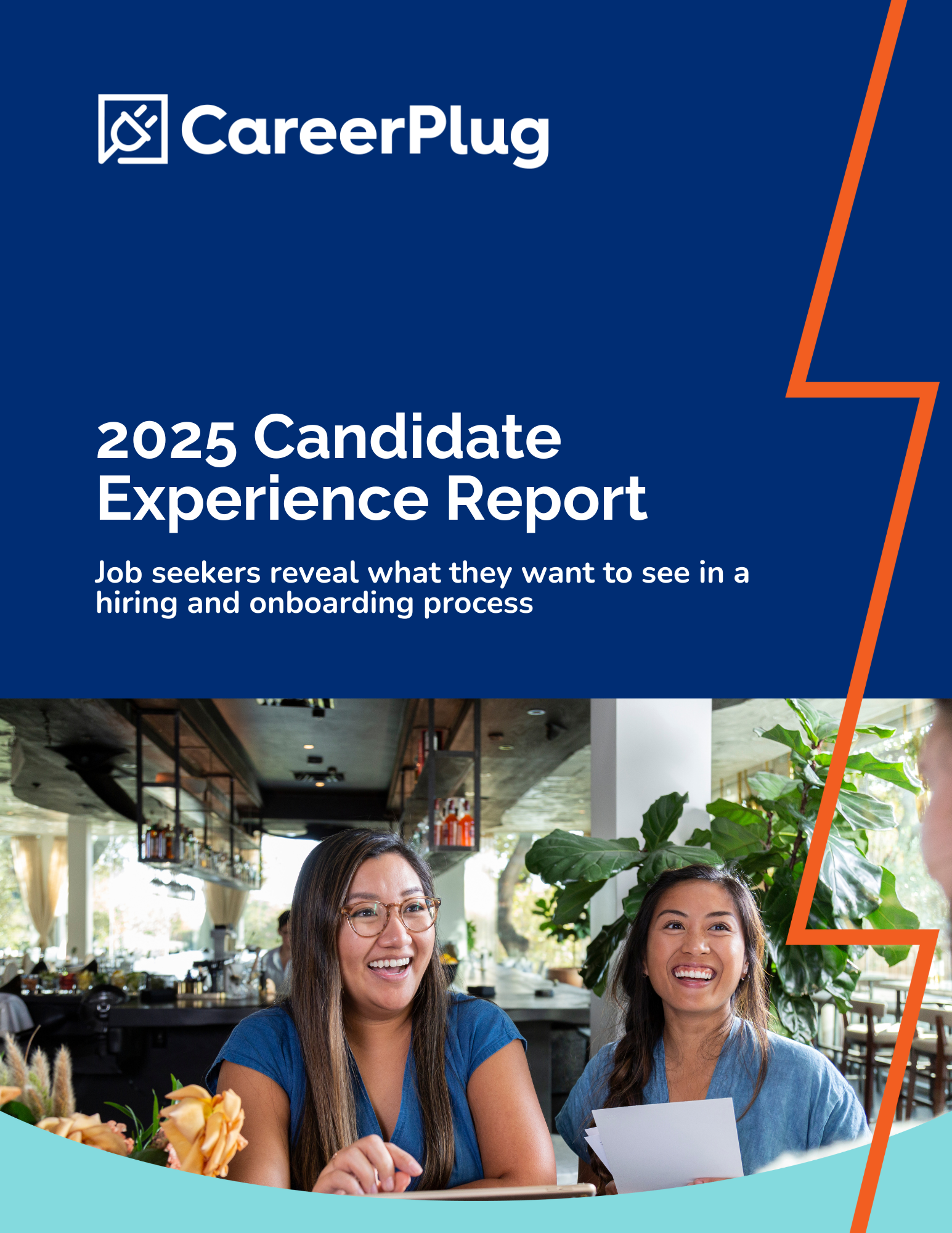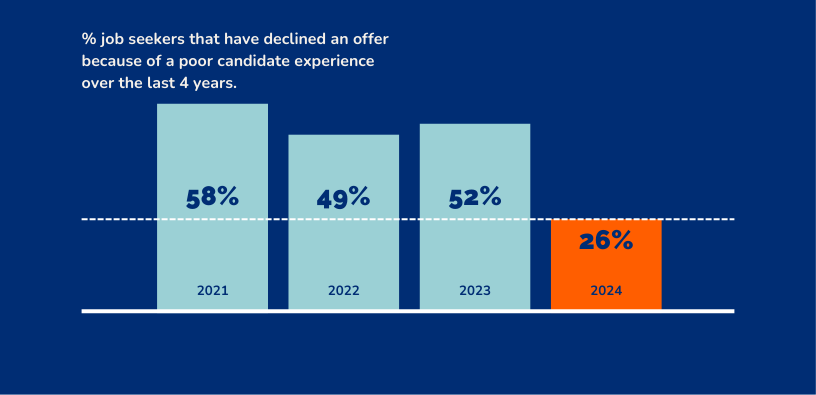Hiring the right people is one of the biggest challenges business owners face today. With turnover, short-staffing, and unqualified hires draining revenue and morale, it’s no wonder employers are rethinking their hiring processes.
We define the candidate experience as the experience a potential employee has with a company from job posting to job offer. As our latest report on candidate experience statistics reveals, improving this experience can have a profound impact on attracting and retaining top talent.

Download the 2025 Candidate Experience Report
Learn what job seekers want from a hiring process so that you can improve yours and make more of the right hires!
DOWNLOAD THE REPORTWhy the candidate experience matters

A positive candidate experience isn’t just a nice-to-have; it’s a crucial factor in landing your top-choice hires. Here’s what our research uncovered:
- 66% of candidates said a positive experience influenced their decision to accept a job offer.
- Poor experiences, such as lack of communication or unclear job expectations, led 26% of job seekers to decline offers in 2024 alone.
This data highlights that while the economic climate may have tempered expectations, the hiring process remains pivotal in a candidate’s decision-making.

Why are job seekers leaving their jobs?
Understanding why candidates are searching for new opportunities is the first step to creating a winning hiring and retention strategy. Here’s what we found:
- 42% of job seekers have considered leaving their jobs in the past year, with 71% of them applying for 1-2 new roles.
- Pay dissatisfaction is the number one reason employees consider leaving, followed closely by the need for better benefits and flexibility.
- Layoffs are a significant driver, with 33% of those who left their jobs citing termination as the reason.
What job seekers want in the hiring process
Transparency, respect, and efficiency are high priorities for candidates navigating today’s job market. Here are some specifics:
- Compensation Transparency: Nearly half (47%) of job seekers expect to learn about salary before applying. Job posts that clearly outline pay and benefits attract more applicants and build trust.
- Flexible Schedules: Candidates value the ability to choose or swap shifts and seek workplaces that accommodate their work-life balance.
- A Streamlined Process: Lengthy or impersonal application processes, such as one-way video interviews, can deter candidates. In fact, 33% of job seekers have abandoned applications requiring such interviews.
- Positive Interview Experiences: Interviews are a two-way street. Negative interactions during interviews caused 36% of candidates to decline offers. In-person interviews remain the preferred format for 70% of job seekers.
The role of AI in hiring
While AI tools can improve efficiency in hiring, they’re not without controversy. Here’s what candidates think:
- 40% of job seekers are uncomfortable with AI in the hiring process, with 47% saying AI chatbots make recruitment feel impersonal.
- Over-automating tasks, such as initial screenings or communications, can alienate candidates. Employers should prioritize tools that balance automation with human interaction.
What influences candidates to join your company
Beyond the job itself, candidates are swayed by factors like workplace culture, growth opportunities, and responsiveness:
- Culture: Showcase your company’s mission, values, and team dynamics through your careers page, interview process, and onboarding.
- Growth Opportunities: Candidates value continued education, tuition reimbursement, and clear career pathways. Highlight these in job postings and interviews.
- Quick Responses: Responding promptly during the hiring process is critical. Text recruiting, for example, boasts a 97% read rate within 15 minutes, helping you stay ahead.
Onboarding: The first 90 days
The candidate experience doesn’t end with a signed offer. Onboarding plays a crucial role in retention, with nearly 75% of employees agreeing that it’s important.
Adopting a 30-60-90 day onboarding plan can help:
- Learning Phase (First 30 Days): Introduce new hires to their role, team, and tools.
- Integration Phase (Days 31-60): Encourage collaboration and help employees find their place in the company culture.
- Execution Phase (Days 61-90): Set goals and evaluate progress to ensure long-term success.

Streamline onboarding with CareerPlug
Create a strong first impression with CareerPlug’s Onboarding & Team Management software. Build customized onboarding flows and easily check your new hire’s progress.
Learn moreHow to improve the candidate experience
To attract and retain the best talent, focus on these actionable steps:
- Transparency: Clearly outline compensation, benefits, and job expectations in your job postings.
- Efficiency: Simplify your application process and avoid overly complex steps.
- Communication: Keep candidates informed at every stage, from application to offer.
- Personalization: Balance automation with a human touch to make candidates feel valued.
- Organized onboarding: Create structured plans to set new hires up for success.
By prioritizing these areas, you can turn your hiring process into a powerful tool for building a talented and engaged workforce. Remember, a positive candidate experience isn’t just about filling open roles; it’s about building lasting relationships with the people who will drive your business forward.

Learn more about what job seekers are looking for!
Improve your candidate experience with insight from real job seekers and get more candidates to say yes to your job offers. Get your copy now to read all of our findings from the 2025 Candidate Experience Report.
DOWNLOAD THE REPORT